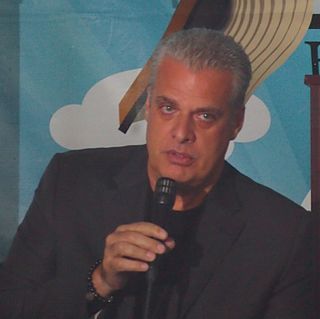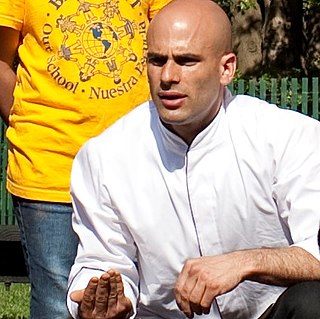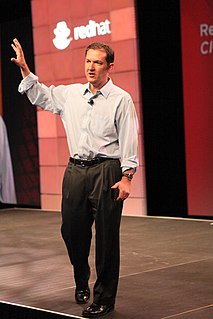A Quote by Steve Ells
Our economic model allows us to invest a disproportionate amount in our food costs. We have a very efficient system: customers go through a single line, the people who serve you are the ones who make the food, and our menu board is not cluttered.
Related Quotes
Cooking is a holistic process of planning, preparing, dining and sharing food. I place food at the center of our humanity, as it nourishes not only our physical bodies but also our emotional and spiritual lives. Food is truly a cultural phenomenon that informs our traditions and our relationship with the earth. I genuinely believe that food connects us all.
I think as individuals, people overrate the virtues of local food. Most of the energy consumption in our food system is not caused by transportation. Sometimes local food is more energy efficient. But often it's not. The strongest case for locavorism is to eat less that's flown on planes, and not to worry about boats.
The menu of this kitchen will have more than soup; it will serve as an opportunity to explore the vast untapped power of food as a force for participatory democracy, as a means of empowerment for those who have little and as a lens through which we embrace, and in fact relish, our differences but see and live through our commonalities. If you eat, then you are a part of this.
Delta's plan to upgrade JFK facilities will improve our customers' travel experience and make it more efficient and enjoyable to travel through one of the world's premier international gateways. Our customers should make no mistake that Delta is committed to New York and that this summer's expansion at JFK is an important step in offering enhanced service to customers in most every direction we serve from New York City.
When I created Chipotle in 1993, I had a very simple idea: Offer a simple menu of great food prepared fresh each day, using many of the same cooking techniques as gourmet restaurants. Then serve the food quickly, in a cool atmosphere. It was food that I wanted, and thought others would like too. We've never strayed from that original idea. The critics raved and customers began lining up at my tiny burrito joint. Since then, we've opened a few more.
Those of us who think about what we eat, how it's grown, those of us who care about the environmental impact of food - we've been educated by fabulous books, like Fast Food Nation and documentaries like Food Inc. But despite these and other great projects that shine a critical light on the topic, every year the food industry spends literally tens of millions of dollars to shape the public conversation about our food system.
It's in that tradition that we're here today, and we look to soup because there's no force on the globe that brings people together on a daily basis with the same consistency and manner than the cultivation, preparation and eating of food. Food affords us the opportunity to touch everyone in our community, to address the needs of all groups - food is the intersection of the most pressing issues of our time.
































